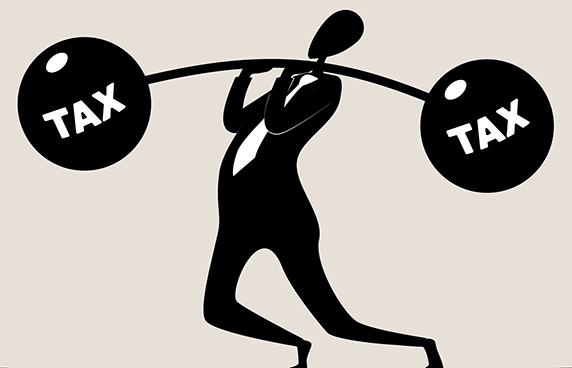State Can Avoid Employer Tax Hikes by Using COVID-19 Relief Funds

Absent corrective action by state lawmakers, employers in 12 states—including Connecticut—face major federal unemployment tax hikes later this year.
Most states took out federal loans when their unemployment trust funds were overwhelmed following the historic surge in claims driven by pandemic-related lockdowns and restrictions in March and April of 2020.
States that had not repaid their loans, plus interest, by Jan. 1 this year include California, Colorado, Connecticut, Hawaii, Illinois, Massachusetts, Minnesota, New Jersey, New York, Pennsylvania, Texas, and West Virginia.
They face an automatic 0.3% increase in the FUTA tax imposed on employers if their loans are not fully repaid by Nov. 10 2022.
The increase is equivalent to approximately $21 per employee, and will continue to increase each year that federal loan balances remain.
Debt Exceeds $520 Million
Connecticut’s current outstanding federal loan principal balance exceeds $520 million, not including an additional $2.3 million in interest payments due Sept. 30.
Despite the number of states taking out federal loans during the pandemic, the U.S. Congress did not act to provide any relief, other than waiving interest charges until Sept. 6 2021.
Last month, Connecticut was one of eight states that requested a further waiver on interest charges “until at least June 30, 2022, giving adequate time for our states to address this financial dilemma appropriately.”
Federal lawmakers and the Biden administration have pointed to the CARES Act and ARPA funds as methods states can use to repay or reduce unemployment loans and interest payments.
Connecticut’s federal loan debt exceeds $520 million, plus another $2.3 million in interest payments due Sept. 30.
Thirty-three states have used federal coronavirus relief funds to resolve their unemployment loan balances either in whole or in part.
Connecticut lawmakers authorized $155 million from federal relief funds in 2021 to pay down a portion of the state’s loan balance.
As Connecticut’s short and long term fiscal picture begins to improve, many lawmakers have continued to call for tax relief for both residents and businesses.
A bipartisan group of lawmakers also recommended that a portion of the state’s additional remaining ARPA funds should be used to further reduce Connecticut’s outstanding federal unemployment debt.
Economic Crossroads
Connecticut’s economy is at one of the most critical crossroads in decades.
The state cannot afford to repeat the aftermath of the 2008-2010 recession, when employers were hit with unemployment tax hikes four times higher than in neighboring states.
That financial strain prolonged the economic downturn. Connecticut was one of the few states that failed to recover all jobs lost in the recession, with GDP growth also stagnant for much of the following decade.
Connecticut cannot afford to repeat the aftermath of the last recession, when employers were hit with unemployment tax hikes four times higher than in neighboring states.
Connecticut has now recovered 75% of the 292,400 jobs lost to COVID-related shutdowns and restrictions.
The state’s 6% unemployment rate is well above the U.S. rate of 4.2% and tied for sixth highest in the country.
Lawmakers have an opportunity to use existing revenue surpluses to provide long promised tax relief that will help prime our economy for long-term growth.
However, that relief is in vain if employers are saddled with the full cost of the massive number of unemployment claims that followed government shutdowns and restrictions at the beginning of the pandemic.
For more information, contact CBIA’s Eric Gjede (860.480.1784) | @egjede.
RELATED
EXPLORE BY CATEGORY
Stay Connected with CBIA News Digests
The latest news and information delivered directly to your inbox.


